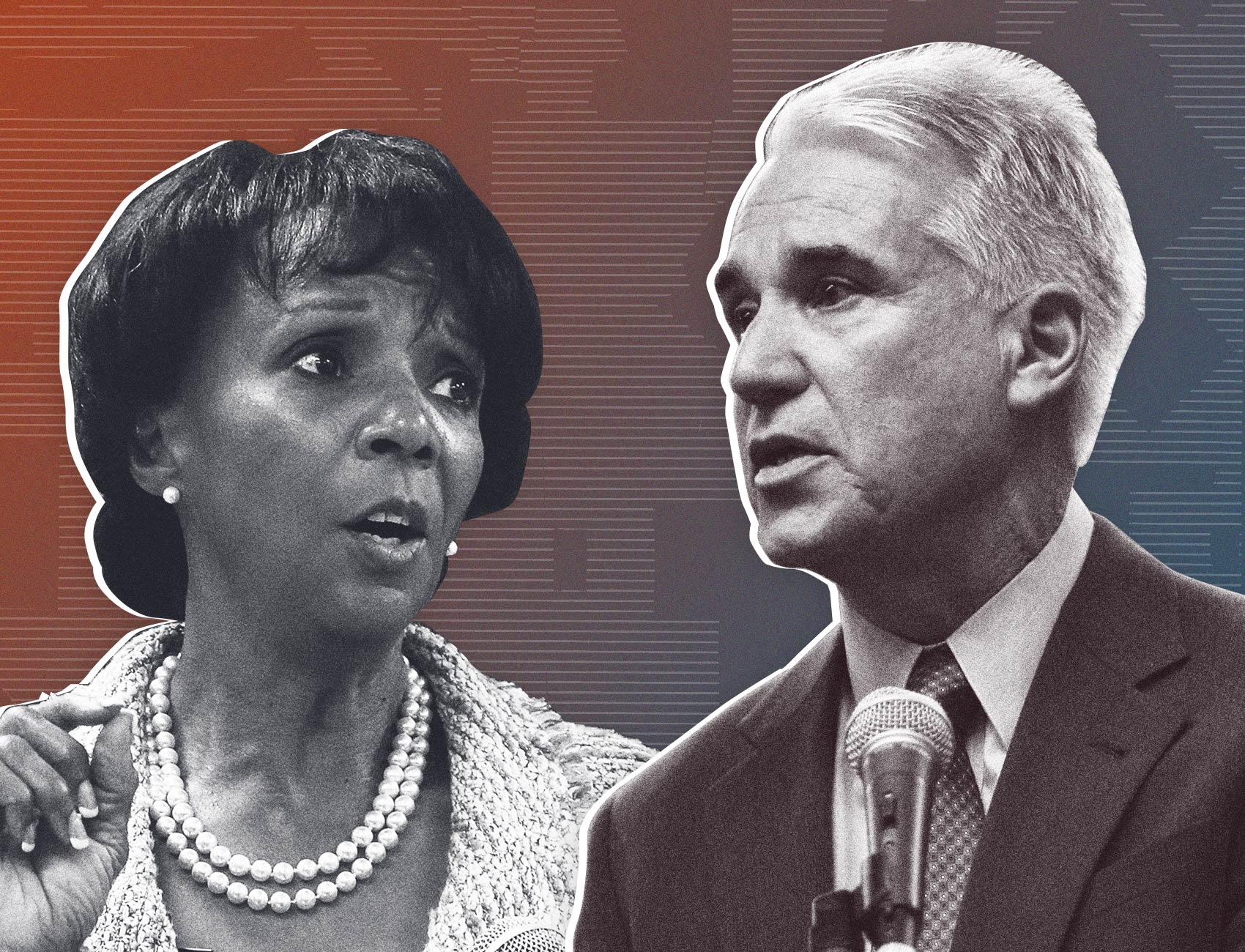Los Angeles D.A. Candidates Spar on Police Shootings, Death Penalty
DA Jackie Lacey and challenger George Gascón outlined diverging visions for the top prosecutor’s office in the nation’s most populous county.

Los Angeles County District Attorney Jackie Lacey and her opponent, former San Francisco District Attorney George Gascón, laid out their diverging views for the top prosecutor’s office in a debate Thursday, clashing on issues like the death penalty, gang enhancements, and the prosecution of cops who shoot and kill civilians.
Lacey, who has served as the county’s district attorney since 2012, is facing a challenge to her re-election bid by Gascón, a former assistant chief of the Los Angeles Police Department and chief of police in San Francisco, who solidified a reputation as a reformer as San Francisco DA.
During the debate, Gascón called Lacey a “faithful steward of the past,” highlighting the reforms he hopes to bring to the nation’s most populous county. Gascón has been vocal about his intention to hold accountable police officers who shoot unarmed civilians. During her time in the DA’s office, Lacey has prosecuted only one officer for killing a civilian, leading to protests outside her office and her home.
“She continues to find that it is necessary for police to kill unarmed people,” Gascón said. “Perhaps she thinks it’s fine, or perhaps it’s all the money she has taken from police unions.” Lacey has benefitted from more than $5 million in contributions to outside committees benefiting Lacey has come from law enforcement unions.
Activists have also criticized Gascón for not bringing charges in any of the 49 police shootings that occured during his time as San Francisco DA. He said that the standard for unreasonable force set by California law made it too difficult to bring charges. Last year, Gascón advocated for legislation to strengthen standards for police use of force. Lawmakers ultimately adopted a weakened version of the proposal. He said Thursday that he believed he would be able to bring charges in the 2015 police shooting of Mario Woods if it came before him today.
Lacey and Gascón also disagreed on the death penalty. Lacey, who says she reserves the punishment for select defendants convicted of the most violent offenses, has sent at least 23 people to death row during her tenure. Almost none of them were white. She said she will use the punishment so long as it’s permissible by law.
“Until the voters tell me they don’t want this penalty anymore, we’re going to continue to seek it, but seek it in very rare cases,” she said. In 2016, Los Angeles County voters approved a ballot initiative to abolish the death penalty, even as it failed statewide.
Gascón pointed to the racial disparities in the use of the death penalty nationally, including the fact that Black defendants are most likely to be sentenced to death if their victim is white. “The death penalty has lost its utility a very long time ago,” he said.
The candidates also laid out different visions of how they would prosecute cases, with Gascón calling for changes that would reduce criminal convictions and very long sentences. They sparred over gang enhancements, a tool that is overwhelmingly used against people of color to increase penalties for offenses associated with gang activities. Gascón said he would stop using them, while Lacey said she would continue doing so.
Gang databases, which are sometimes used to seek the sentencing enhancements, have come under fire for being riddled with inaccuracies and being very difficult to get names removed from. Lacey said she didn’t just rely on databases, and that her prosecutors verified claims of gang involvement independently.
The candidates also discussed diversion programs. Lacey said she has prioritized mental health diversion and would expand the practice if more secure facilities and programs were available. Echoing the criticisms of defense attorneys and criminal justice reform advocates, Gascón said only a small group of people were able to benefit from her diversions.
Gascón framed Lacey as a hardline prosecutor, while Lacey claimed Gascón was just a puppet of wealthy donors who want to experiment with criminal justice reform in Los Angeles. Toward the end of the debate, Lacey accused Gascón of texting with progressive donors while they were speaking. Gascón, laughing it off, said he was just taking notes on his phone.
